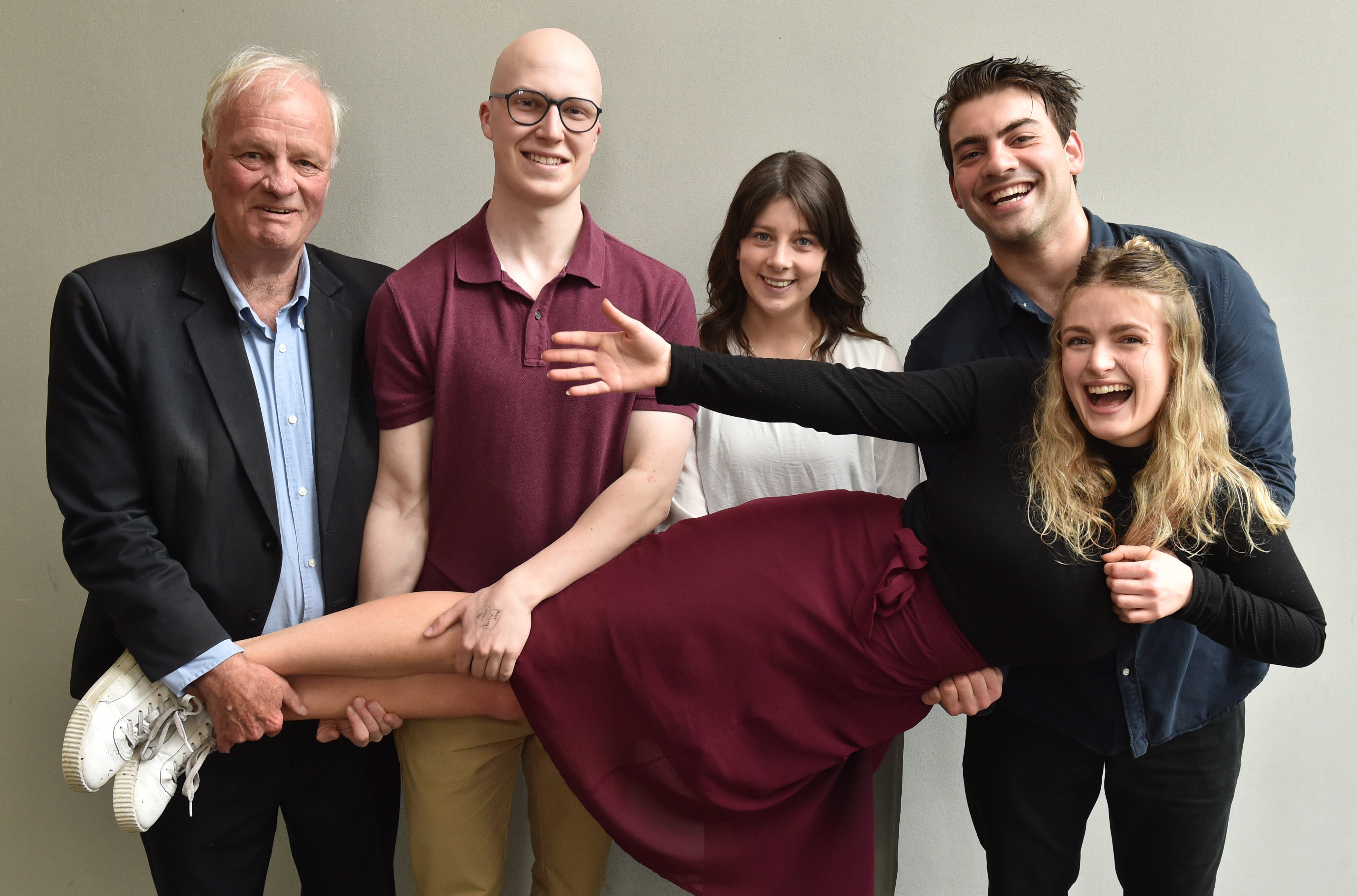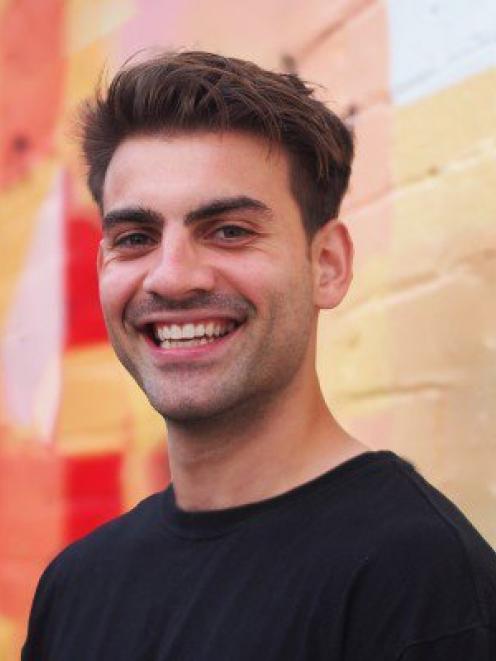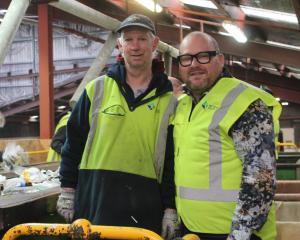
It was what he described as the classic student lifestyle.
Playing rugby, flatting with 17 other lads in the quintessential Dunedin student pad known as The Boathouse, in Heriot Row, and studying economics and philosophy at the University of Otago.
On reflection, commerce graduate Xavier English believes he is an example of how the university prepares its students for the world stage.
If the name is familiar, then it is because Mr English, 24, is the youngest child of former prime minister Sir Bill English and wife Mary.
Now living in Melbourne, he is running a tech/start-up content agency which he co-founded called Supermix, working with some of the biggest names in global tech/start-up media or, as he puts it, "the Taylor Swifts of tech podcasts".
His family has strong links with the university; all five of his siblings attended Otago, including his sister Maria, who studied there for a semester before getting a scholarship to Cambridge University.
Both his parents studied at Otago and, with his father being one of 12 siblings and his mother the eldest of 13, so did "a million cousins, uncles [and] aunties", he quipped.
While candidly acknowledging he probably did not take advantage of enough opportunities — "I was focused on rugby opportunities and having fun" — Otago provided the foundation for a global career in modern media.
That included case competitions run by the Otago Business School and he said former business case programme leader Jude Chelliah had been "super encouraging" of all commerce students.
In case competitions, teams of students are given a business situation and a timeframe in which to come up with a solution to be presented and judged.
Mr English, who started the Otago Case Consulting Club and made the New Zealand business case team, said case competitions had taught him how to think, in a structured way, about a business.
It taught team members to break down a problem into key elements and "chart a course through the chaos".
Those skills were the second-best thing he got out of case competitions, the first was his partner Antonia Post, now a litigator in New York. The pair were members of the same case competition teams and started the club together.
The couple were in Covid-19 lockdown together in Dipton — the English family home — during what he described as a crossroad in his life.
"I was hours away from the deadline for telling a big 4 consulting firm whether I was going to accept their grad role offer and I was genuinely on the fence until the last minute.
"Despite me having no real alternate plan, Antonia encouraged me to take the road less travelled, decline and do my own thing," he said.
Also while back home in Dipton, he came across a Facebook post by an old secondary school classmate which put New York-based JUV Consulting on his radar.
The marketing, creative services and research agency — which was sold earlier this year — had a roster of customers including Spotify, Google, Meta’s Instagram, Unilever, Converse, Nike and Levi’s.

He even made a rap to show he was "willing to do whatever".
"I said, ‘don’t worry about time zones, I’ll be available’."
So while flatting at The Boathouse, he was also working remotely for the firm, consulting Fortune 500 brands on their media and marketing strategy.
He reckoned that was so much easier to do from Dunedin — and his flat — given so many students were awake in the early hours, which also gave him a chance to warm up his conversation skills so he did not sound half-asleep.
There were also programmes through Startup Dunedin and Ignite and he found inspiration in graduates like Hamish McKenzie, who started Substack, and David Booth, who co-founded On Deck, an exclusive start-up community based in San Francisco, along with fellow entrepreneurial students like Angus Syme and Cam Leigh, who started Flatpack.
"There’s so much community culture that you just can’t help but bump into everyone once and figure out who your people are."
Supermix produces tech and start-up content, mostly podcasts.
A typical customer was one with 200,000 followers on Twitter and a Substack newsletter distributed to 50,000, and had just started a podcast covering how to be better at building products or growing companies — "thought-leadery-type people".
Guests who had been on Supermix’s customers podcasts included Spotify co-president Gustav Soderstrom, Four Seasons Hotels founder Isadore Sharp, Nancy Duarte, who was Al Gore’s consultant for An Inconvenient Truth, Jack Altman, brother of OpenAI founder Sam Altman and Airbnb founder Brian Chesky.
The latter was a full-circle moment for Mr English, who recalled being a 12-year-old in Dipton — "so far away from the world of Silicon Valley" — when he discovered podcasts on an iPad belonging to one of his parents and was glued to a podcast featuring Mr Chesky.
"It was just so, so, so inspiring.
"That’s what gave me the itch, there’s this whole world of stuff you can do and build. I want to go into that world," he said.
Supermix now has a team of ten fulltime staff, including Mr English. A pivotal moment was hiring Niv Singh, the company’s first fulltime Kiwi employee.
Prior to that, it was he and his co-founder "making it up as we go". It was not really a business, they were just "working really hard to do something".
Seeing someone like Mr Singh being willing to invest his skills in their company set the tone.
Going from two to three people was a morale boost — "this isn’t just our random thing" — as he too saw the vision.
Mr Singh has been editing a new podcast by David Booth called Diaspora, which profiles the founders, innovators and emerging leaders of the Kiwi expat community.
Mr English said he had what was a fairly common story of diaspora; Kiwis going overseas, acquiring skills, meeting people — hopefully seeing some places along the way — to then bring all that back to New Zealand and hopefully be useful.
When it came to his own background, Mr English believed the most under-rated benefit of having his parents for parents was exposure to "amazing conversations with people from all walks of life". And that was what he was now trying to give billions more people access to, via podcasts, which he said could be like a parent, friend or mentor.
Having moved on from rugby to kickboxing due to injuries, Mr English acknowledged he had "lived a pretty awful social life" the past couple of years as he kept his head down making Supermix happen.
His mates probably thought he had "tapped off the grid" and while he hoped to be a better mate soon, he saw that as "kind of an entrance fee".
"It’s the ticket price to what can be an awesome event."












